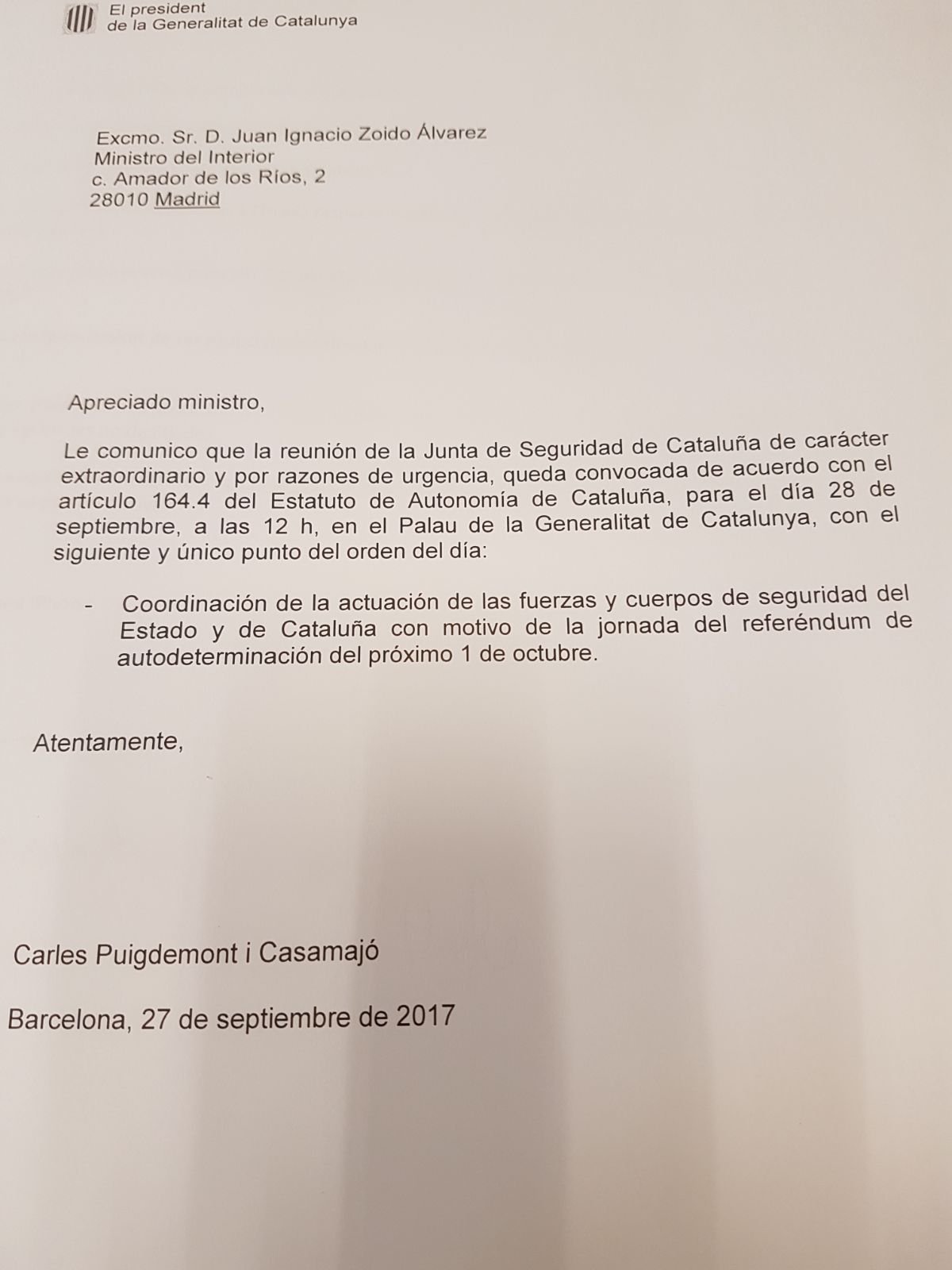Catalan president Carles Puigdemont has called a "extraordinary" meeting of the Security Board of Catalonia for "urgent reasons" for 12pm this Thursday at the Catalan government palace.
The meeting, called under powers defined in article 164.4 of Catalonia's Statute of Autonomy, has only a single item on the agenda: the "coordination of the activity of the security forces and bodies of the [Spanish] state and of Catalonia on the occasion of the self-determination referendum on 1st October". The Spanish Interior ministry has expressed its intention to attend, although it hasn't confirmed if minister Juan Ignacio Zoido will be there in person.

This comes after the Superior Court of Justice of Catalonia (TSJC) rejected the appeal presented by the Catalan government this Tuesday, as a cautionary measure, asking for the suspension of the decision that Civil Guard colonel and Interior ministry official Diego Pérez de los Cobos take over the coordination of security resources for 1st October, as ordered by the Public Prosecutor of Catalonia.
This morning, Catalan Interior minister, Joaquim Forn, had asked on Catalan radio station RAC1 that "any decision that has to be made" be done so by the Security Board. Forn made this comment after seeing the Public Prosecutor's latest decision to prevent the referendum this Sunday.
The Security Board of Catalonia is a body comprised, in equal parts, by the Spanish and Catalan government, presided over by the Catalan executive. On the Catalan side, it is attended by the Interior minister, the general secretary of the Interior department, the director general of the Police and the ranking person of the Legal Service of the Interior department.
Statutory attributions
The called Board meeting, which could clash with the Spanish government's decision to impose the control of Pérez de los Cobos on the police operation, is based on article 164 of the Statute of Catalonia, which defines the competences of the Mossos d'Esquadra and the Board itself.
In particular, the Statute specifies that the "planning and regulation of the system of public security in Catalonia" falls to the Catalan government, as does the "supreme command" over the Catalan police force, the Mossos d'Esquadra, and "the coordination of the activity of the local police".
Moreover, it clarifies that the Catalan government is also responsible for "the governing functions over the exercising of the rights of assembly and protest", rights which could specifically be violated if the vote on 1st October is prevented.
As for the Security Board, which Puigdemont convened in July for the first time in nine years, despite the reticence of the Spanish government, article 164.4 of the Catalan Statute specifies that the joint body is for the "coordination of the security policy and the activity of the police bodies of the [Spanish] state and of Catalonia", arguments solid enough to reject the coordination mechanism unilaterally imposed of a Civil Guard colonel.
